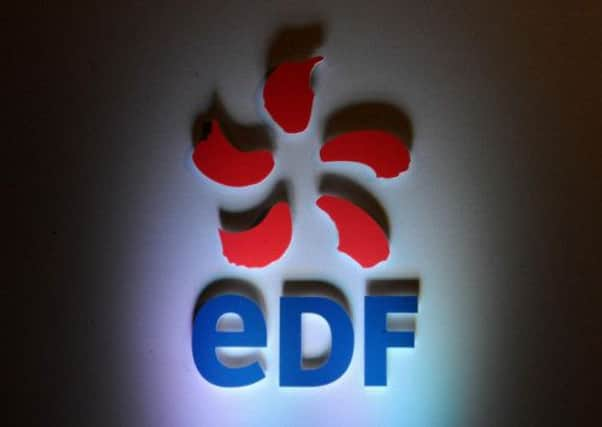EDF makes billion-pound profit after raising bills


• EDF record profits of £903 million in first half of year in UK as campaigners hit out at soaring returns
• French-owned company claims greater gas demand for coldest spring in 50 years, and the selling of power at higher prices, was behind rise
Advertisement
Hide AdAdvertisement
Hide Ad• Campaigners criticise EDF for raising energy bills by average of 10.8 per cent last year
The French-owned supplier said underlying earnings rose
2.8 per cent, helped by greater gas demand from households during the country’s coldest spring in 50 years and by selling power at higher prices on the wholesale markets.
The firm, which supplies gas and electricity to about 3.7 million UK homes, increased bills by 10.8 per cent on average late last year. But it insisted its UK retail arm continues to lose money. The company has about 74,000 customers in Scotland.
The figures come ahead of British Gas owner Centrica’s first-half results, due out today.
Last night campaigners said the price hikes would cause hardship for those on low incomes and called for the government to take action to force energy firms to reveal their full profits from wholesale prices.
EDF – the UK’s biggest electricity generator – earned the bulk of its profits through its power generation arm, which has eight nuclear power stations in the UK, plus two coal plants and one gas-powered station. It said UK revenues rose
7.3 per cent to €4.99 billion (about £4.33bn) during the first six months of the year.
EDF said UK profits rose due to “good control of operating expenses and favourable wholesale prices” and were also “underpinned by higher gas sales to retail customers due to the cold weather in the first half”.
Advertisement
Hide AdAdvertisement
Hide AdRising profits are likely to infuriate customers, who were forced to spend more to stay warm during the winter.
An EDF spokesman gave no details but said its UK retail arm was “likely” to have remained loss-making during the first half of the year. It recorded underlying losses of £92m in 2012 and £124m in 2011.
The group insisted its customers benefited from the cheapest standard variable prices of any major supplier during 26 of the 28 weeks during the period.
EDF added it invested £560m in its existing nuclear and coal stations, new generation capacity, gas storage and customer supply during the six months. This will “help keep the lights on in future with reliable, secure and low carbon energy”, it said.
The group, which also supplies power in France and Italy, posted underlying earnings up
6 per cent to €9.7bn (£8.4bn).
Last night, Doug Anthoney, communications and campaigns manager with charity Age Scotland, said price hikes would mean many older people on low incomes cutting back on food to pay their energy bills.
He said: “Sadly, I am not surprised by EDF’s announcement about huge profits.
“These power companies seem to have no accountability to the public and their excuses, such as having to spend money to buy on the wholesale market, are not wearing well with older people.
Advertisement
Hide AdAdvertisement
Hide Ad“The harsh reality is that older people on very low fixed incomes will face the choice of paying their fuel bill or having a nourishing meal. This is inexcusable in our society.”
Norman Kerr, director of charity Energy Action Scotland, called for energy firms to be forced into “greater transparency” over how much profit they make from wholesale prices.
He said: “EDF’s profits are not unexpected when we look at those of other energy companies. But over 42 per cent of gas and electricity bills are made up of wholesale prices.
“EDF, like the others, generate electricity through one arm and sell it to themselves and others. That part of the market is not transparent and no-one but the energy companies themselves understand how this market works. The Energy Committee recently said that Ofgem need to do more to get answers on what is going on.”
SEE ALSO